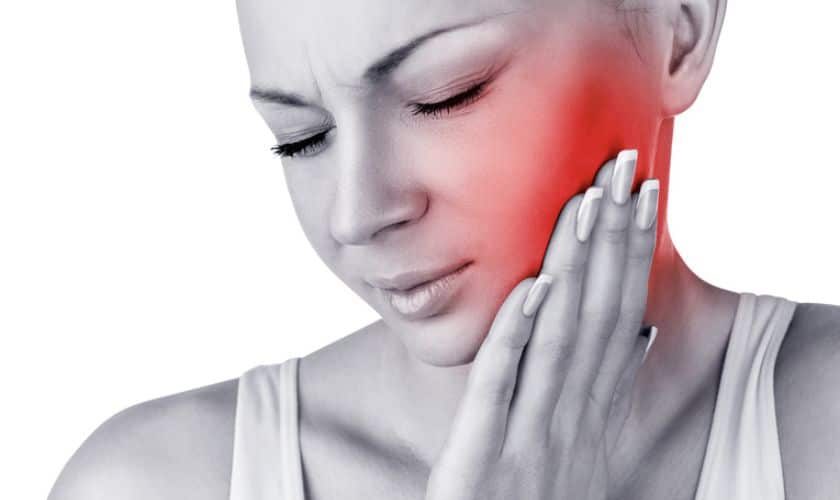The temporomandibular joint (TMJ) is a complex hinge connecting your jaw to your skull. It plays a crucial role in everyday activities like chewing, talking, and yawning. However, sometimes, this joint can malfunction, leading to a condition known as TMJ disorder (TMD).
If you’ve been experiencing jaw pain, headaches, or difficulty chewing, you might be wondering – what exactly is TMJ, and what can be done about it? This blog delves into the world of TMJ, exploring its causes, symptoms, and various TMJ treatment options.
Understanding TMJ Disorders:
TMJ disorders encompass a group of conditions affecting the TMJ joint, the surrounding muscles, and ligaments. These disorders can manifest in various ways, with symptoms ranging from mild to severe.
Common Signs and Symptoms of TMJ:
- Jaw pain and tenderness
- Clicking or popping sounds in the jaw
- Difficulty chewing or opening/closing the mouth
- Facial pain
- Earaches
- Headaches
- Difficulty sleeping
What Causes TMJ Disorders?
The exact cause of TMJ disorders isn’t always clear, but several factors are believed to contribute:
- Muscle Tension: Stress, teeth grinding (bruxism), or poor posture can strain the jaw muscles, leading to pain and dysfunction.
- Joint Injuries: Trauma to the jaw from accidents or dental procedures can damage the joint and cause TMJ disorders.
- Arthritis: Degenerative joint diseases like osteoarthritis can affect the TMJ joint, causing pain and stiffness.
- Misaligned Bite: Uneven bite patterns can put additional stress on the jaw joint, contributing to TMJ issues.
Seeking Solutions: TMJ Treatment Options:
If you suspect you might have TMJ, the first step is to consult with a dental professional in Tulsa. Treatment and diagnosis received early enough can greatly enhance results. Here are a few typical TMJ therapy choices:
- Self-Care Techniques: Applying heat or ice packs to the jaw, practicing relaxation exercises, and maintaining good posture can help alleviate pain and manage symptoms.
- Lifestyle Modifications: Reducing stress, avoiding chewing gum, and softening your diet can all contribute to managing TMJ discomfort.
- Oral Appliance Therapy: Wearing a custom-made mouthguard at night can help prevent teeth grinding and reduce pressure on the jaw joint.
- Physical Therapy: Physical therapists can teach you specific exercises to strengthen jaw muscles and improve joint mobility.
- Medication: Over-the-counter pain relievers or anti-inflammatory medications can offer temporary relief from pain and inflammation.
- Injections: In some cases, injections of corticosteroids or pain-relieving medications into the jaw joint can provide localized pain relief.
- Surgery: Surgical intervention is generally considered a last resort for severe TMJ cases that don’t respond to conservative treatment options.
Finding the Right TMJ Treatment for You:
There’s no one-size-fits-all solution for TMJ disorders. The best TMJ treatment for you will depend on the severity and cause of your specific condition. A qualified healthcare professional, such as a dentist or doctor with expertise in TMJ treatment, can conduct a thorough evaluation, diagnose the underlying cause, and recommend the most appropriate treatment plan.
The Role of Your Dentist in TMJ Treatment:
Dentists often play a crucial role in diagnosing and treating TMJ disorders. They can:
- Perform a comprehensive oral examination to assess your jaw joint and bite.
- Create custom-made mouthguards to prevent teeth grinding and protect your jaw joint.
- Collaborate with other healthcare professionals, such as physical therapists or pain specialists, to provide a multidisciplinary approach to treatment.
Living a Pain-Free Life:
TMJ disorders can be disruptive and uncomfortable. However, with early diagnosis and appropriate TMJ treatment, most people can find relief from their symptoms and regain a healthy, pain-free jaw function.
Schedule a Consultation Today!
If you’re experiencing symptoms of TMJ, don’t hesitate to seek professional help. Early intervention can prevent long-term complications and improve your quality of life. Contact a qualified dentist or doctor to discuss your concerns and explore TMJ treatment options. Working together, you can find a solution to manage your TMJ and achieve a healthy, pain-free smile.

